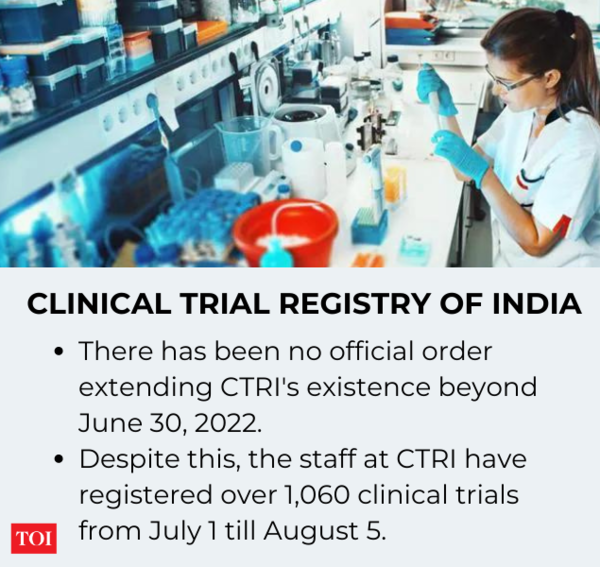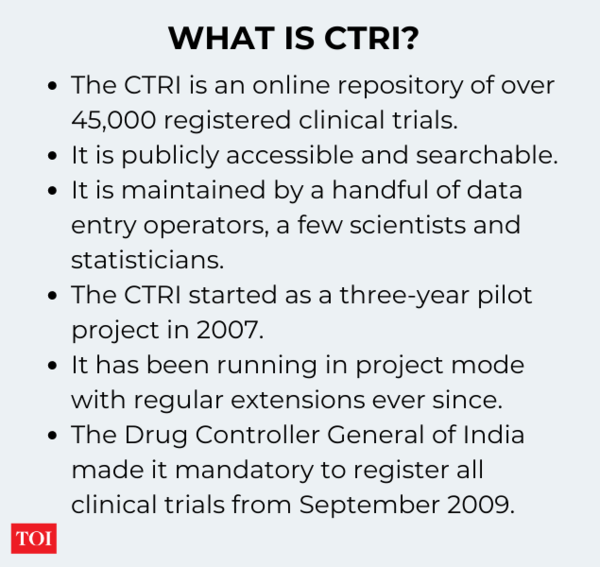
Clinical trial registry ‘doesn’t exist’, ‘ghost staff’ runs tests | India News
[ad_1]

Even as the government fights the regularisation of the staff who have been running CTRI for the last 16 years, CTRI continues to receive hundreds of applications for clinical trials. Trials worth crores of rupees could be stalled if the registry becomes non-functional.
The CTRI is a completely paperless online repository of data of more than 45,000 registered clinical trials. It is publicly accessible and searchable and is maintained by a handful of data entry operators, a few scientists and statisticians. The registry, which was started as a three-year pilot project in 2007, has been running in project mode with regular extensions since instead of being given a permanent status in the National Institute of Medical Statistics (NIMS), where it is physically housed.
This is despite the Drug Controller General of India making it mandatory to register all clinical trials from September 15, 2009 and a 2013 amendment in the Drugs and Cosmetics Rules 1945 which mandated that clinical trials needs to be registered with CTRI before enrolling the first participant for any study. Editors of biomedical journals of India also insist on trial registration as a precondition for considering publication of trial results and so do several ethics committees.

Yet, in a case in the Delhi High Court filed by employees of CTRI asking that the registry be made a permanent feature of NIIMS and that their services be regularised, the government maintained that the CTRI was not a permanent feature of NIMS, which comes under ICMR, and that it was a project “extended from time to time”. It admitted that CTRI was now fully supported by ICMR with funds coming from the health ministry. Making a project a permanent one or not is an executive function and therefore a policy decision stated the NIMS affidavit, asking further if the court would like to intervene at all under the circumstances.
Official correspondence attached to the petition shows that ICMR had committed to ensuring the continuity of the project after the pilot years and that through the years the commitment was to make CTRI a regular activity of NIMS and to create posts in the institute for CTRI. In much of the ICMR correspondence, registration of clinical trials is referred to as “perennial activity”.
NIMS director M Vishnu Vardhana Rao in a May 2021 letter to the ICMR DG stated: “Considering the highly specialized and time bound nature of the work in CTRI, there is a need to accord five-year extension to the trained CTRI scientists and staff who have been working in the project for many years now in a reliable and consistent manner.”
“During the pandemic, including the lockdown phase, the CTRI staff continued to work 24/7, all days of the week to enable COVID studies to be registered at the earliest (often on the same day), providing hand holding as per need of the hour,” stated Rao’s letter.
There was no response to TOI’s queries sent to the health secretary, who is acting director general of ICMR, and to ICMR officials on why CTRI’s existence has not been extended. If and when they respond, the story will be updated.
[ad_2]
Source link


